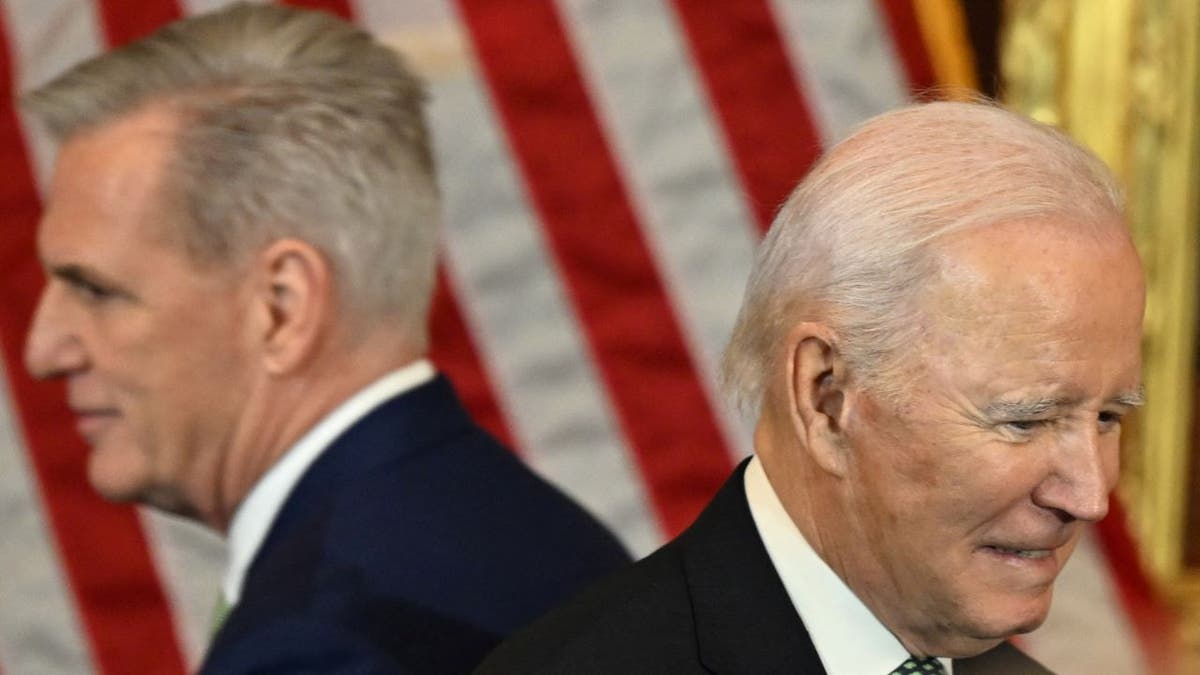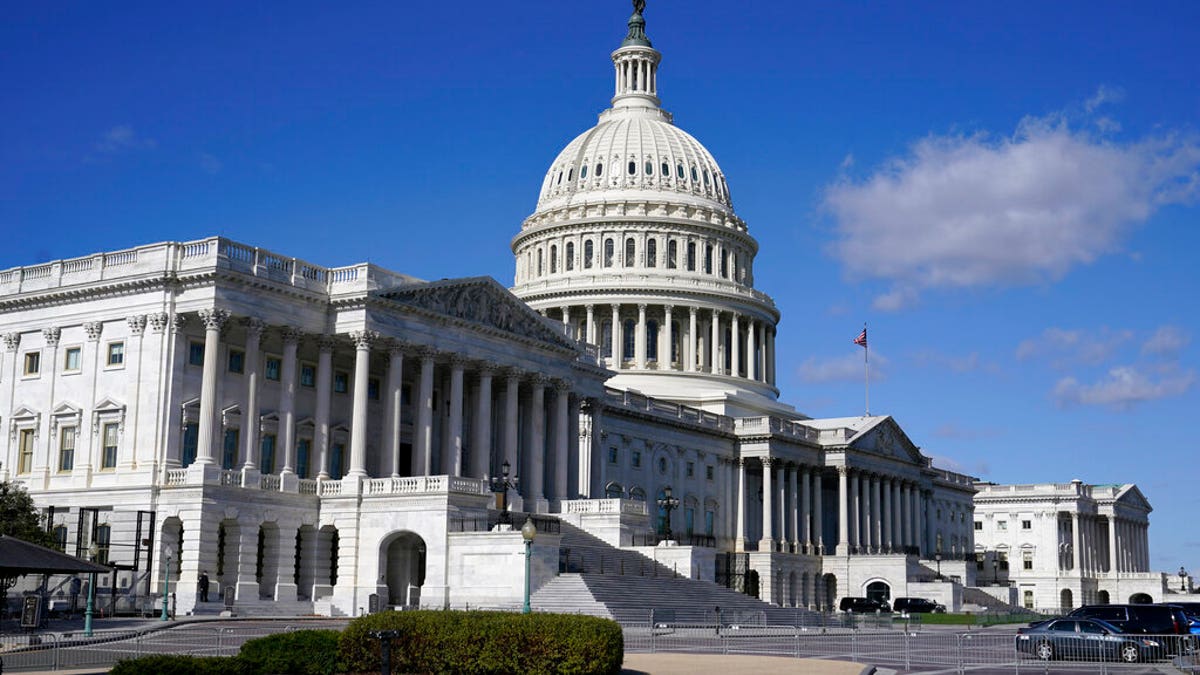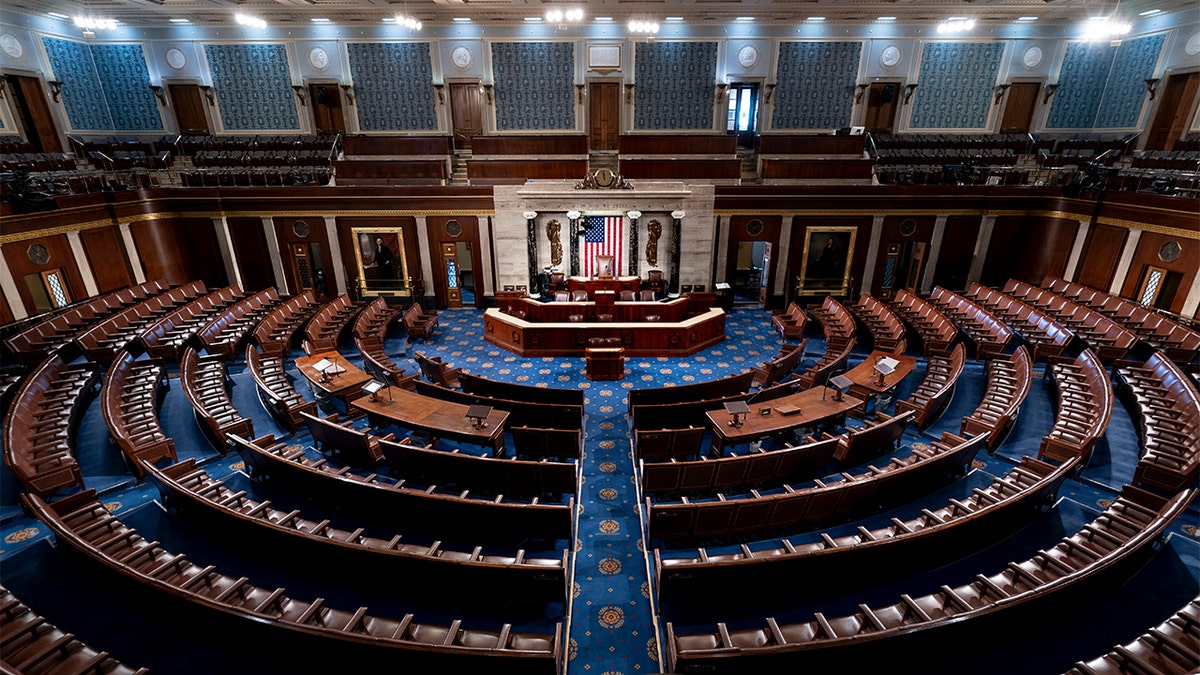Congressional Pig Book exposes these Republicans as most wasteful spenders amid debt ceiling fight
As Republicans advocate for spending cuts in their debt ceiling stand-off with Democrats, an anti-government waste group called out three GOP lawmakers for shuffling more taxpayer dollars to pet projects than anyone in Congress.
As Republicans advocate for spending cuts in their debt ceiling stand-off with Democrats, an anti-government waste group called out three GOP lawmakers for shuffling more taxpayer dollars to pet projects than anyone in Congress.
Two now-retired Republican senators each raked in over half a billion dollars for their home states through earmarks in fiscal 2023, Citizens Against Government Waste (CAGW) reported in its annual Congressional Pig Book. And a GOP congressman was the top spender in the House, funneling over a quarter of a million dollars to his district.
"Legislators are now well on their way to breaking the all-time record," CAGW President Tom Schatz told Fox News. "And it may happen as soon as next year."
‘MOST CORRUPT’ GOVERNMENT PRACTICE AT NEAR-RECORD LEVELS: WATCHDOG
WATCH MORE FOX NEWS DIGITAL ORIGINALS HERE
Earmarks, or pork, are line items lawmakers add to spending bills that designate tax dollars to programs and projects in their home states or districts, circumventing regular budgetary procedures. Last month, CAGW's Pig Book exposed the 7,396 earmarks that weaseled their way into legislation throughout fiscal 2023 and cost taxpayers $26.1 billion.
"Earmarks are the most corrupt, costly and inequitable practice in the history of Congress," said Schatz. "It encourages a lack of fiscal discipline because members are looking for their little piece of pork and they in turn vote for the whole bill, which they might not otherwise support."
Republicans hog top Oinker Awards
While Democrats took advantage of earmarking more often than Republicans, according to Pig Book, it was GOP lawmakers who received the largest sums in both chambers. Now-retired Sen. Richard Shelby of Alabama's 18 earmarks in fiscal 2023 cost taxpayers $666 million, and retired Oklahoma Sen. Jim Inhofe worked in 63 earmarks, costing $541 million, CAGW reported.
The top spender in the House was Rep. Randy Weber received 10 earmarks costing $288 million, Pig Book shows. The report also highlighted another Republican, Sen. Cindy Hyde-Smith, as a winner in its "Oinker Awards" for allocating $6 million to the Ulysses S. Grant Presidential Library at Mississippi State University in Starkville.
"I have seven ports deeply tied to shipping goods and energy products worldwide, and given the nature of my district, I'm advocating on behalf of the gulf coast of Texas and the entire nation," Weber told Fox News. "I was tired of faceless and nameless Washington bureaucrats making decisions we were elected to make."
"Our country cannot afford the woke and weaponized spending that has been foisted upon us," the Texas Republican added. "We must shrink Washington and grow America."

Now-retired Sen. Richard Shelby or Alabama, retired Oklahoma Sen. Jim Inhofe and Rep. Randy Weber of Texas received the most earmarked funding across both Congressional Chambers, the annual Pig Book shows. (Bloomberg/Chip Somodevilla)
Shelby, Inhofe, and Hyde-Smith didn't immediately return Fox News' request for comment.
"Taxpayers understand that the increase in spending has been a key factor in inflation," Schatz told Fox News. "Taxpayers are more and more aware that not only is there wasteful spending, but there are ways to stop the government spending so much money."
The $26.1 billion of earmarked spending revealed in this year's Pig Book marks the third-highest total since CAGW began tracking the practice in 1991. In 2006, earmarks hit $29 billion and $27.3 billion in 2005.
The 89 members of the House and Senate appropriations committees, which make up only 17% of Congress, were responsible for 41.4% of the earmarks in 2023, CAGW found.
While earmarking only accounts for 1% of government spending, Schatz said that money bypasses the appropriate budgetary processes "and benefits a small group of members of Congress."
"That's what people need to understand about earmarks, and then perhaps they will be eliminated," Schatz added.

President Biden is set to meet with top Republicans and Democrats in Congress this week to try to resolve a standoff over the $31.4 trillion debt ceiling and avoid default before the end of the month. (ANDREW CABALLERO/AFP via Getty)
President Biden is set to meet with top Republicans and Democrats in Congress this week to try to resolve a standoff over the $31.4 trillion debt ceiling and avoid default before the end of the month.
Democrats, including the president, are calling to raise the federal government's borrowing limit without conditions. House Republicans, however, passed a bill in April that would raise the debt limit but also make sweeping spending cuts over the next decade.
The fact that tying the debt ceiling to spending cuts "seems to be gaining popularity is certainly a sign that taxpayers have had enough of overspending," Schatz said.
The GOP bill would reduce spending back to 2022 levels — a 9% cut from the 2023 budget — while raising the debt limit by $1.5 trillion or through March 2024, whichever came first, and reducing future deficits by nearly $5 trillion over the next decade.
"That's the least that can be done. Anybody can find 10% to cut back," Schatz told Fox News. "The impact of inflation over the last year has been a 10% increase for a lot of people on a lot of the goods and services they buy. They've had to cut back."
TOP SENATE REPUBLICANS COALESCE AROUND MCCARTHY AFTER HE UNVEILS DEBT LIMIT PROPOSALS

Tom Schatz said members of Congress need to start showing more fiscal restraint, stop taking earmarks, and push for spending cuts. (AP Photo/Patrick Semansky, File)
‘Benefits their districts or states, not the whole country’
Congress imposed an earmark moratorium in 2011 following multiple cases of corruption and misuse. But in 2021, Democrats in both chambers as well as House Republicans voted to lift the moratorium, though restrictions were added to stave off abuse, including capping earmarks at 1% of discretionary spending, barring funds from going to for-profit entities and requiring lawmakers to disclose their earmark requests.
Since 1991, CAGW has identified 124,212 earmarks costing $437.5 billion.
"Members of Congress add these projects and programs because it benefits their districts or their states, not the whole country," Schatz said. "Many of them think it helps them get re-elected, but that became problematic when members and lobbyists went to jail as a result of the corruption associated with the earmarks."
"That hasn't happened yet with the revival of earmarks, but it may happen soon enough," he added.
Schatz said lawmakers treat the Department of Defense in particular as "a bottomless money pit."
CAGW found $1.5 billion allocated through three earmarks for the F-35 Joint Strike Fighter. Included was funding for 18 aircraft that the Pentagon didn't request.
All told, the Defense Department received $10.1 billion from 134 earmarks in 2023, acocording to the report.
Lawmakers, "in the name of national security, add money, but they are not following what the Pentagon wants," Schatz said.
Additionally, the watchdog group found $67 million earmarked for museums, $26 million for theaters and $13 million for presidential libraries.

The 89 members of the House and Senate appropriations committees, which make up only 17% of Congress, were responsible for 41.4% of the earmarks in 2023. (AP Photo/J. Scott Applewhite)
"There are numerous programs throughout the federal government that provide grants and loans to museums already," Schatz said. "These museums went around that grant process, and they got the money directly through their members of Congress."
A number of Republicans have supported the idea of permanently eliminating earmarks. Rep. Tom McClintock, for example, put forward an amendment to bar member-directed spending in November, but House Republicans killed it in a 52-158 vote.
CLICK HERE TO GET THE FOX NEWS APP
Schatz said Congress needs to show more fiscal restraint, stop using earmarks and push for spending cuts.
"Almost $4 trillion was spent over the last two years, some of it for quote-unquote COVID-19 relief," Schatz told Fox News. "Now the pandemic emergency is over. Whatever is left that is not spent should be taken back."
"That should be the very least that's done on this debt ceiling bill," he said. "And there are a lot of other examples of duplication and overlap."
To watch the full interview, click here.







